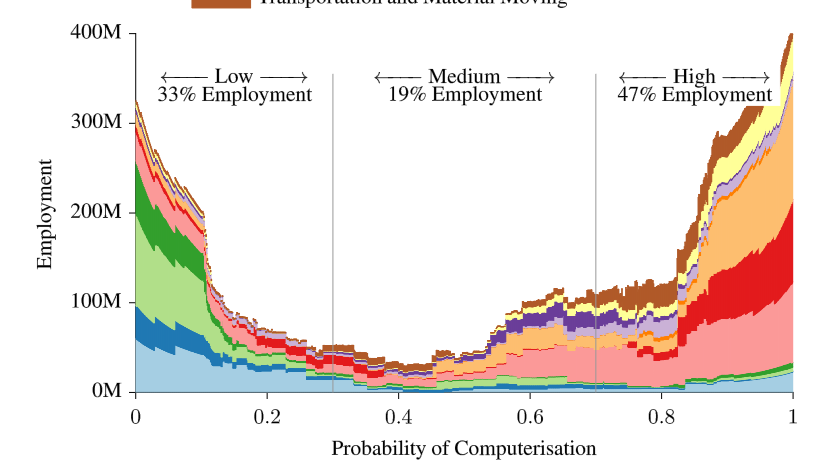The Outdated Math and Physics Behind Economics
In Who Cooked Adam Smith’s Dinner, Katrine Marçal traces the roots of mainstream economics and particularly neoliberalism. One of the strands she discusses is the the connection between economics and Newtonian physics. Newton believed that the universe was made up of fundamental particles. To understand complex physical things, you have to break them down into smaller and smaller pieces until you hit the unit of everything, the Lego blocks from which the universe is constructed: the atom and the photon (Newton thought the photon was a particle). From there you can work towards an understanding of the cosmos.
Particles are governed by forces. For Newton, the important force was gravity. The ultimate particle and the ultimate force can be used to explain a lot of the physical phenomena which we can observe with simple tools. Newton’s theory is deterministic: the future is predictable because particles only move in accordance with rigid laws.
In economics, the atom is the individual. The force that sets those atoms into motion is self-interest.
I’ve made passing reference to this before, but Marçal’s book brings it to the forefront. Most of the time when we hear about the history of economics after Smith, we hear about the math stuff, frequently starting with the idea of marginal utility generated by William Stanley Jevons around 1870. Jevons was a mathematician, who set out to create equations for the calculus of pleasure and pain as described by Jeremy Bentham. The subsequent history of economics can be read as a long math exercise using mostly calculus, and linear algebra (matrices) for modeling.
The thing is, math was just being formalized in the 1800s. Riemann completed the formalization of the calculus in 1854 (here’s an interesting history.) Other areas of math were being developed and formalized at that time, and development continues today, with, for example, fractal math. So maybe a good question is why economists stick with 19th Century math. Can’t they find something new that might work better than the obviously lousy models they use today that were incapable of predicting the Great Crash? I mean, how could anyone think it makes sense to model human beings as a large number of identical particles that only interact in monetary transactions and are otherwise unaffected by each other; and all of which are subject only the force of self-interest?
But just as math has advanced, so has physics. One of the changes is that physicists aren’t searching for ultimate particles any more; in fact as we currently understand things, we aren’t even sure the things studied are in some particular place. Physicists now study the relationships between various kinds of forces. They describe elementary particles by the forces through which they interact which in turn are defined in math terms, and terms that are a lot further from calculus than calculus is from addition. The relationships are mediated through the Schrödinger equation; It describes our observation small numbers of what we think today are elementary particles, but it is too hard to solve it for any large group of particles.
But in economics, nothing is complicated. It’s just individuals motivated by self-interest. And that’s a remarkably stupid thing. Has nothing changed in the last 150 years? Is linear algebra, which we learned in my junior year in high school, all these guys have learned from math and physics?
To put this another way, if economists were just cranking up their discipline today, with no theory of our current form of economy, they certainly would not use 19th C. math and physics as models. Would they use 18th C. markets in England and Scotland as their model? Of course not.
Fortunately I’m here to help. I’m happy to let economists continue the work of defining and collecting economic statistics, but it’s time to look for a more plausible theory. And as a starting place, I’ll put up a couple of posts with ideas for a new theory for the 21st C. No need to thank me. Which they won’t.

